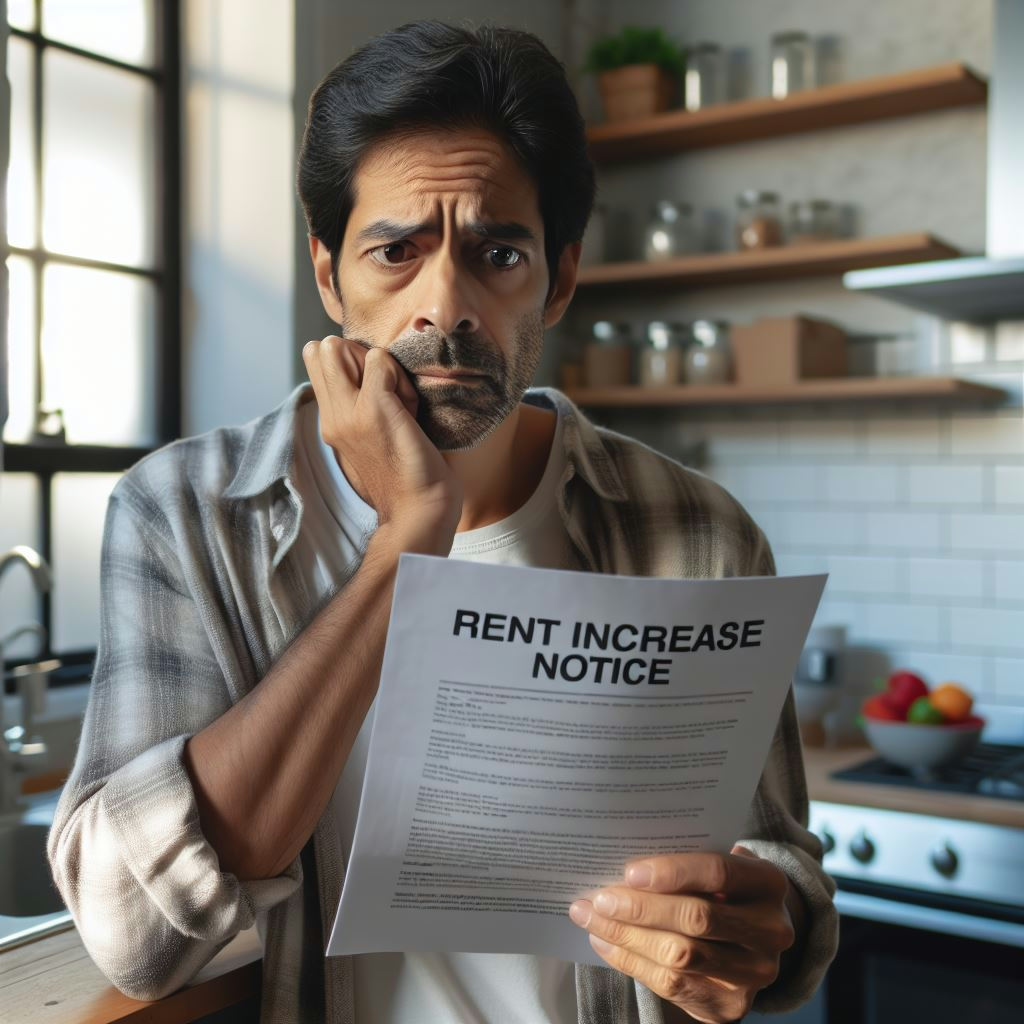Navigating the complexities of rent increase regulations in British Columbia (BC) is essential for both landlords and tenants to ensure compliance with the law and maintain a fair housing market. As the cost of living continues to rise, understanding the legal framework governing rent increases helps in promoting transparency and preventing disputes. This guide provides a comprehensive overview of the guidelines for legally raising rent in BC, covering key aspects such as regulatory frameworks, allowable increases, notice requirements, and special circumstances.
Table of contents
Understanding Rent Increase Regulations in BC
The regulations governing rent increases in BC are primarily outlined in the Residential Tenancy Act (RTA) and the Manufactured Home Park Tenancy Act. These acts serve as the legal backbone for all rental agreements, ensuring that both landlords and tenants are protected under a fair and equitable system. The primary purpose of these regulations is to balance the rights and responsibilities of both parties, preventing arbitrary or excessive rent hikes that could lead to financial instability for tenants.
Rent increase regulations in BC apply to most residential tenancies, including apartments, houses, and manufactured home parks. However, there are some exemptions, such as non-profit housing and certain types of cooperative housing agreements. It is crucial for landlords to determine whether their rental property falls under the jurisdiction of the RTA, as this will dictate the rules they must follow when considering a rent increase.

To legally increase rent, landlords must adhere to the guidelines set forth by the Residential Tenancy Branch (RTB), which is responsible for enforcing the RTA. The RTB provides resources and guidance for both landlords and tenants, ensuring that rent increases are conducted in a fair and transparent manner. By following these regulations, landlords can avoid costly disputes and maintain a positive relationship with their tenants.
Landlords must also be aware of the penalties for non-compliance, which can include fines or orders to repay tenants for illegal rent increases. Understanding the legal framework and adhering to the prescribed procedures is essential to avoid these repercussions and ensure a smooth rental experience for both parties.
Annual Allowable Rent Increase Percentage
Each year, the BC government sets an annual allowable rent increase percentage, which dictates the maximum amount by which landlords can raise rent for existing tenants. This percentage is determined based on the Consumer Price Index (CPI) and aims to reflect inflationary pressures while ensuring affordability for tenants. The allowable increase is typically announced by the government in the fall and applies to rent increases effective in the following calendar year.
The annual allowable rent increase percentage is a critical component of BC’s rent control measures, as it provides a predictable framework for both landlords and tenants. By limiting rent increases to a percentage that aligns with inflation, the government seeks to maintain a balance between the financial needs of landlords and the affordability concerns of tenants. This approach helps to prevent sudden, drastic rent hikes that could destabilize the rental market.
Landlords must calculate the rent increase based on the current rent amount and apply the allowable percentage to determine the new rent. It is important to note that this percentage does not automatically apply to all rental units; landlords must provide proper notice and follow the prescribed procedures to implement the increase legally. Tenants have the right to dispute any rent increase that exceeds the allowable percentage or fails to adhere to legal requirements.
In some cases, landlords may apply for an additional rent increase beyond the allowable percentage if they can demonstrate that their costs have increased significantly. This process involves applying to the RTB for approval and providing evidence of the increased expenses. However, such applications are subject to scrutiny and require a strong justification to be granted.
Notice Requirements for Rent Increase in BC
One of the key components of legally raising rent in BC is adhering to the notice requirements set by the RTA. Landlords must provide tenants with written notice of a rent increase at least three full months before the increase takes effect. This notice period is designed to give tenants ample time to adjust their budgets or seek alternative housing arrangements if necessary.
The notice of rent increase must be delivered using the approved form provided by the RTB, ensuring that all necessary information is clearly communicated. This includes the current rent amount, the new rent amount, the percentage increase, and the effective date of the increase. Failure to use the correct form or provide adequate notice can render the rent increase invalid, leaving landlords unable to collect the higher rent.
In addition to the proper form and timing, landlords must ensure that the notice is delivered in a manner that complies with the RTA. Acceptable methods of delivery include personal service, registered mail, or email if the tenant has consented to electronic communication. Landlords should keep records of the delivery method and date to provide evidence of compliance in case of a dispute.
Tenants have the right to dispute a rent increase if they believe that the notice requirements were not met or if the increase exceeds the allowable percentage. Disputes can be filed with the RTB, which will review the case and determine whether the rent increase is valid. By following the prescribed notice requirements, landlords can avoid disputes and maintain a harmonious rental relationship.
Exceptions and Special Circumstances in Rent Hikes
While the annual allowable rent increase percentage and notice requirements provide a general framework for rent increases, there are exceptions and special circumstances that may apply. One such exception is for rental units that have undergone significant renovations or improvements, which may justify a higher rent increase. Landlords seeking to implement such increases must apply to the RTB for approval and provide evidence of the renovations and associated costs.
Another exception involves situations where the property has been subject to extraordinary increases in operating costs, such as property taxes or utility expenses. In such cases, landlords may apply for an additional rent increase to cover these costs. The application process requires detailed documentation and justification, as the RTB will carefully assess whether the additional increase is warranted.
Some tenancies, such as fixed-term leases that include a rent increase clause, may have different rules regarding rent increases. Landlords and tenants should review their lease agreements to understand any specific provisions that may apply. It is important to note that even in these cases, landlords must still comply with the notice requirements outlined in the RTA.
Finally, rent increases may be affected by local government regulations or housing initiatives aimed at preserving affordability in certain areas. Landlords should stay informed about any such regulations that may impact their ability to raise rent. By understanding the exceptions and special circumstances that apply to rent increases, landlords can navigate the process more effectively and ensure compliance with all relevant laws.
Understanding the guidelines for legally raising rent in BC is crucial for both landlords and tenants to ensure a fair and stable rental market. By adhering to the regulations set forth by the RTA, landlords can implement rent increases in a transparent and equitable manner, while tenants can protect their rights and budget accordingly. Staying informed about annual allowable rent increase percentages, notice requirements, and exceptions helps to prevent disputes and maintain positive landlord-tenant relationships. As the housing market continues to evolve, ongoing education and awareness of the legal framework will remain essential for all parties involved.
Important: Please note that the information here is not meant to be legal advice. Do not solely rely on the information given here; it is important that you consult with a lawyer regarding any legal advice. Pax Law Corp. is not responsible for any reliance on the contents of this blog post. Any faces posted on this blog post is totally AI generated and they are not intended to represent any person in the real world. Any similarities are completely coincidental.
1. What are the main regulations governing rent increases in BC?
Rent increases in BC are governed by the Residential Tenancy Act (RTA) and the Manufactured Home Park Tenancy Act. These regulations ensure fair practices between landlords and tenants.
2. How does the Residential Tenancy Act affect rent increases in BC?
The Residential Tenancy Act outlines the rules for rent increases, including allowable percentages, notice requirements, and exceptions for different rental situations.
3. What is the purpose of rent control in BC?
Rent control in BC aims to balance affordability for tenants with fair returns for landlords, preventing excessive rent hikes that could destabilize the housing market.
4. What is the allowable rent increase percentage in BC?
The allowable rent increase percentage is set annually by the BC government, based on the Consumer Price Index (CPI) and reflects inflationary pressures.
5. How is the allowable rent increase calculated?
The allowable rent increase is calculated by applying the set percentage to the current rent amount. Landlords must follow the prescribed process to implement this increase legally.
6. Can landlords increase rent beyond the allowable percentage?
Yes, landlords may apply for an additional rent increase if they can demonstrate increased costs, such as significant renovations or higher operating expenses. Approval must be obtained from the Residential Tenancy Branch (RTB).
7. How often can a landlord raise rent in BC?
A landlord can raise rent once every 12 months, subject to the allowable rent increase percentage and proper notice requirements.
8. What notice period is required for a rent increase in BC?
Landlords must provide at least three full months’ written notice before implementing a rent increase. The notice must be in the approved format provided by the RTB.
9. What information must be included in a rent increase notice?
The notice must include the current rent amount, the new rent amount, the percentage increase, and the date when the increase will take effect.
10. Can rent increase notices be delivered by email in BC?
Yes, a rent increase notice can be delivered by email if the tenant has agreed to receive notices electronically. Otherwise, it must be delivered in person or by registered mail.
11. What happens if a landlord does not follow the rent increase notice requirements?
If the notice requirements are not followed, the rent increase may be considered invalid, and the landlord cannot collect the higher rent amount.
12. How can tenants dispute an illegal rent increase in BC?
Tenants can file a dispute with the RTB if they believe the rent increase exceeds the allowable percentage or violates the notice requirements.
13. Are there any exemptions to rent increase regulations in BC?
Yes, exemptions may apply for non-profit housing, certain cooperative housing agreements, or specific types of rental units.
14. Can landlords raise rent for tenants on a fixed-term lease?
Fixed-term leases may have specific clauses regarding rent increases. Even so, landlords must still adhere to the overall notice requirements and rent control regulations.
15. Can rent increases be imposed if the rental unit has been renovated?
If significant renovations have been made to the property, landlords can apply for a rent increase above the allowable percentage, but they must seek approval from the RTB first.
16. What documentation is needed for a rent increase due to renovations?
Landlords must provide detailed evidence of the renovations and associated costs when applying for an additional rent increase due to renovations.
17. Can operating cost increases justify a rent hike in BC?
Yes, landlords can apply for an additional rent increase if they can demonstrate that extraordinary increases in operating costs (e.g., property taxes, utilities) warrant it.
18. How can landlords apply for an additional rent increase in BC?
Landlords must submit an application to the RTB, providing evidence of the increased operating costs or renovations and justifying the additional increase.
19. What penalties do landlords face for illegal rent increases in BC?
Penalties for non-compliance with rent increase regulations may include fines or orders to repay tenants for illegal rent hikes.
20. Can tenants dispute a rent increase that exceeds the allowable percentage?
Yes, tenants can dispute any rent increase that exceeds the allowable percentage by filing a complaint with the RTB.
21. Are there any special rules for rent increases in manufactured home parks?
Rent increase rules in manufactured home parks generally follow the same regulations as other rental properties but may have specific nuances. Landlords must consult the Manufactured Home Park Tenancy Act for more details.
22. How does inflation affect allowable rent increases in BC?
The allowable rent increase is tied to inflation, as measured by the Consumer Price Index (CPI), ensuring that rent increases reflect the cost of living.
23. Are there any government programs to protect tenants from rent hikes in BC?
Yes, there are various tenant protection programs that aim to prevent excessive rent hikes and ensure affordability. Local government initiatives may also influence rent increase regulations.
24. Can local government policies affect rent increases in BC?
Yes, local government regulations or housing initiatives may limit rent increases in certain areas to preserve affordability and prevent displacement.
25. What is the role of the Residential Tenancy Branch (RTB) in rent increases?
The RTB oversees rent increase regulations, provides guidance for landlords and tenants, and handles disputes related to rent hikes.
26. How can tenants verify if their rent increase is legal?
Tenants can check the allowable rent increase percentage for the year and review the notice requirements to ensure that the rent increase complies with BC’s laws.
27. What should landlords do if they are unsure about rent increase regulations?
Landlords should consult the RTB or a legal professional to ensure they are in compliance with all applicable rent increase rules and regulations.
28. Can tenants get compensation for illegal rent increases?
Yes, tenants may be entitled to compensation if a rent increase is found to be illegal, including repayment for any overpaid rent.
29. Are rent increases allowed in government-subsidized housing in BC?
Government-subsidized housing may have different rules for rent increases, often tied to income or other specific criteria.
30. How does a rent increase affect tenants with subsidies in BC?
For tenants receiving subsidies, rent increases may affect the amount they pay out-of-pocket, depending on their subsidy agreement.
31. Can a landlord refuse to renew a lease to avoid a rent increase?
No, landlords cannot refuse to renew a lease solely to avoid rent increase regulations. However, they may choose not to renew for other legitimate reasons outlined in the RTA.
32. Can a tenant move out to avoid a rent increase?
Yes, tenants are free to move out after receiving a notice of rent increase, as long as they follow the terms of their lease and the proper notice is given.
33. Can rent increases be waived during a pandemic?
During emergencies such as a pandemic, the BC government may introduce temporary measures to limit rent increases or provide rent relief programs.
34. Do different regions in BC have different rent increase rules?
No, rent increase rules are consistent across the province but may be affected by local housing initiatives or municipal policies.
35. What is a rent freeze, and how does it apply in BC?
A rent freeze is a temporary suspension of rent increases, typically implemented during extraordinary situations such as economic crises or public health emergencies.
36. Can rent increases be implemented during a tenant’s fixed-term lease?
Rent increases during a fixed-term lease are generally prohibited unless specified in the lease agreement, but landlords must still provide proper notice.
Discover more from Pax Law Corporation
Subscribe to get the latest posts sent to your email.



0 Comments